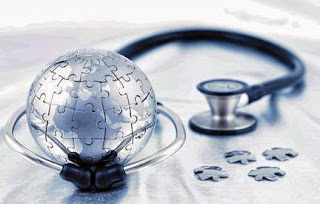EMR – Simplifying Healthcare
In a bid to simplify healthcare, over time, the healthcare and
information technology sectors have worked hard to find ways that will streamline
health information management, increase productivity and reduce overheads.
By making clinical documentation more efficient, Electronic Medical
Records (EMR) systems have had a significant impact on the healthcare sector.
Through continuous awareness, development and government support, EMRs have
brought physicians into the future. Those days are long gone when doctors
manually input information such as patient demographics, lab reports, process
billing and document workflows.
Significantly, information stored on an EMR is safe, allowing physicians to
document patient encounters with a holistic view of the patient’s history and
current medications, ensuring the highest quality of clinical care. The simple
longitudinal summary of patient’s past complaints, diagnosis, medications and
history restricts the possibility of oversight.
Incorporated in the EMR Software, clinical knowledge base
provides pertinent information regarding particular diseases whilst an
interaction check runs in the background to identify potential interactions
against drugs and allergies.
EMR vendors now seek to develop and incorporate features within
a single platform. given the rise in patient volumes and limitation of
physician time, Established EMR
vendors have developed their EMR solution with a built-in Practice Management component
that acts as a engine for the administrative workflows of the practice. This
streamlines the front and back office operations within a practice, whilst
role-based security ensures that users can only access the areas relevant to
their role, with secure and easy access.
With the advent in innovative technologies such as Electronic
Medical Record Softwares and the evolution of the healthcare IT industry, vendors will continue to
improve and incorporate innovative features within their solutions. However,
development in technology will only aim to assist clinicians with built-in
alerts and interaction checks to ensure that the possibility of human oversight
or error is reduced greatly.



Comments